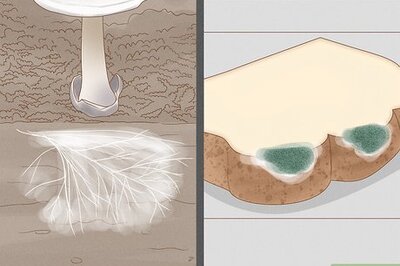
views
When a person doesn’t grow up in a very affectionate home, receiving displays of love, it is difficult for them to receive affection when it comes to them. Those who are natural givers andwhohave grown up becoming the peacemakers of the house may even feel uncomfortable when they receive compliments or support. If you believe this, this completely resonates with you. Remember, you’re not alone in this. Many people struggle with receiving affection.
Speaking about the same, Instagram user Stephanie Rigg said, “If you are someone who has traditionally adopted the role of giver, caretaker, and support person in your relationships, there’s a good chance that receiving is something you struggle with. While it’s easy to complain about always occupying this role and blame others for not mirroring our efforts, often there’s more to this dynamic than meets the eye.”
Here are five signs that prove that you struggle with receiving affection:
- You consistently wind up in relationships as the person who is the giver, the supporter, the caretaker, or the one accommodating the other person.
- You face difficulties directly asking for help or support, even if you need it. You feel vulnerable and worry about what the other person will think. Rather, you’re likely to wait for someone to offer, and even then, you might go through a few rounds of pushing back.
- You feel uncomfortable or guilty if someone goes out of their way to accommodate you. It is even where you wouldn’t think twice about doing the same for them.
- If someone compliments your appearance, youare quick todeflect or minimise the praise.
- You also feel uncomfortable being the centre of attention, like with the idea of throwing a birthday party for yourself or people showing up for you.
“If some or all of the points in this post resonate with you, I would encourage you to reflect onwhere they come from. For many of us, it’s a cocktail of feeling unworthy and undeserving,togetherwith a fear of rejection and being too much. These wounds drive us to believe that to be loveable, we must be low maintenance and that our value in relationships resides in our ability to make others’ lives easier,” Stephanie Rigg added.




















Comments
0 comment